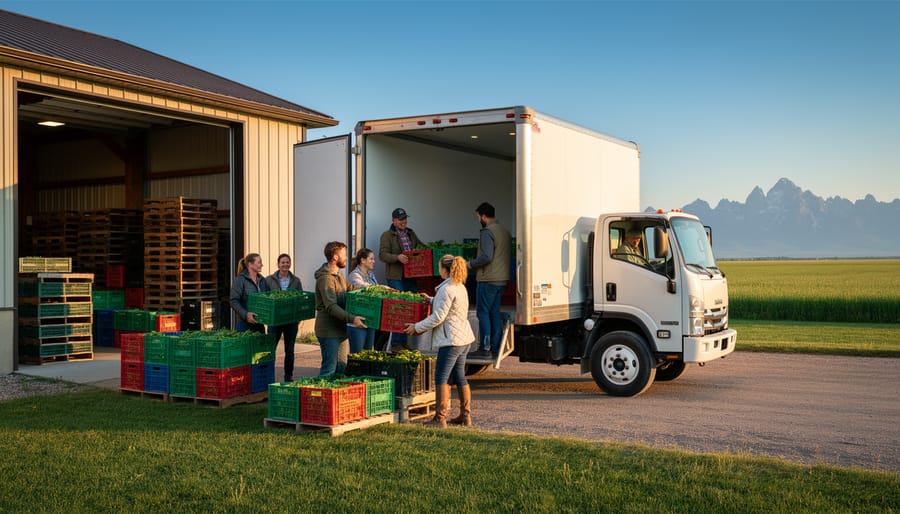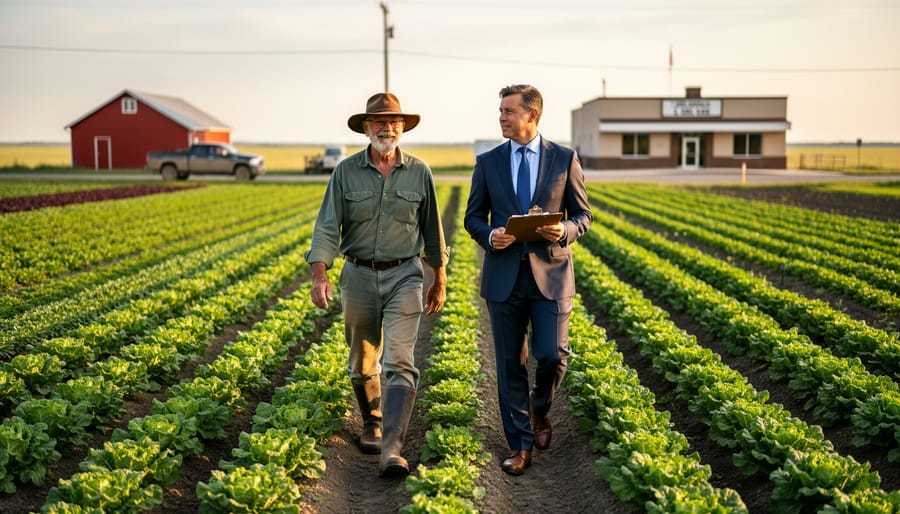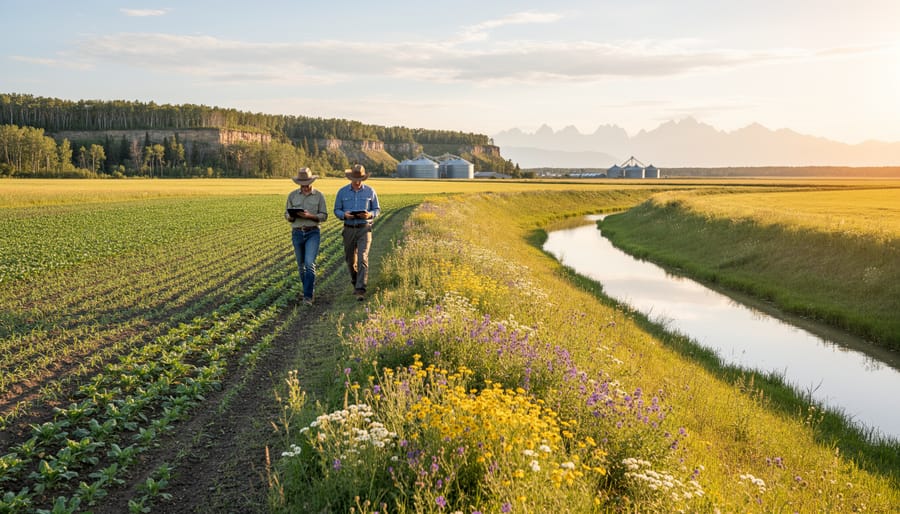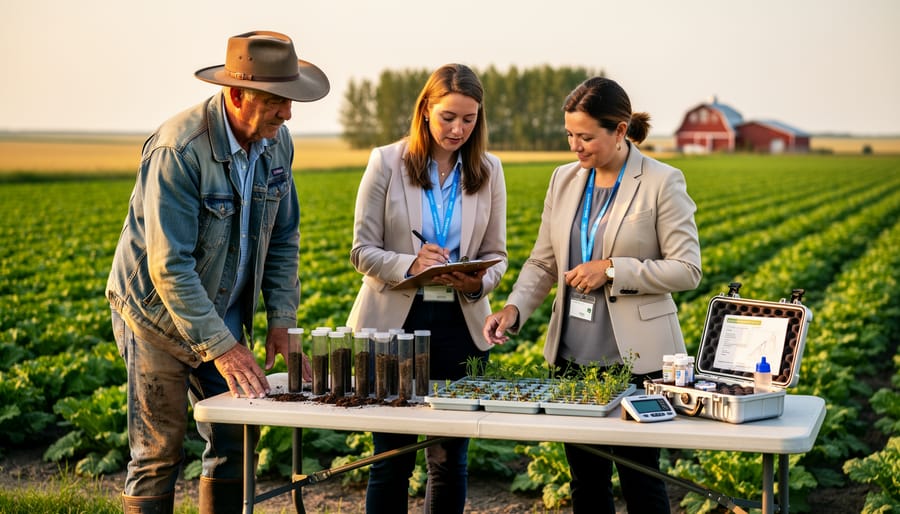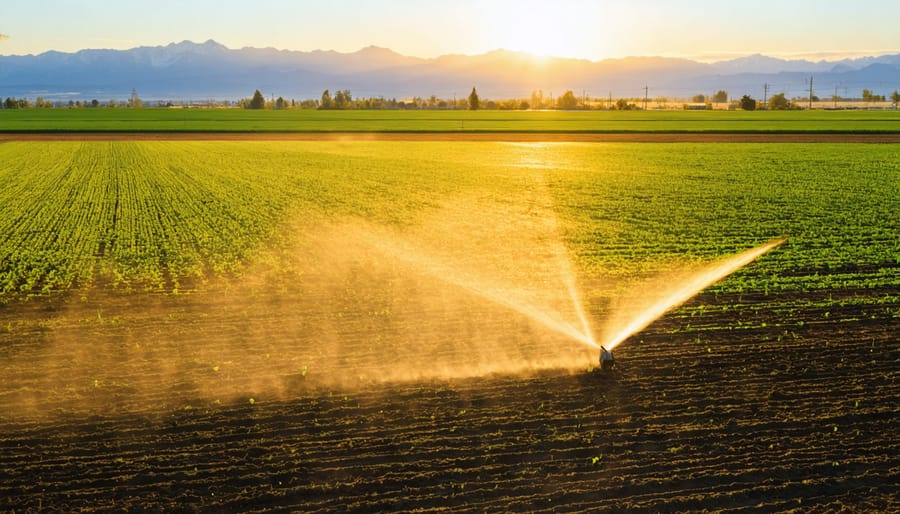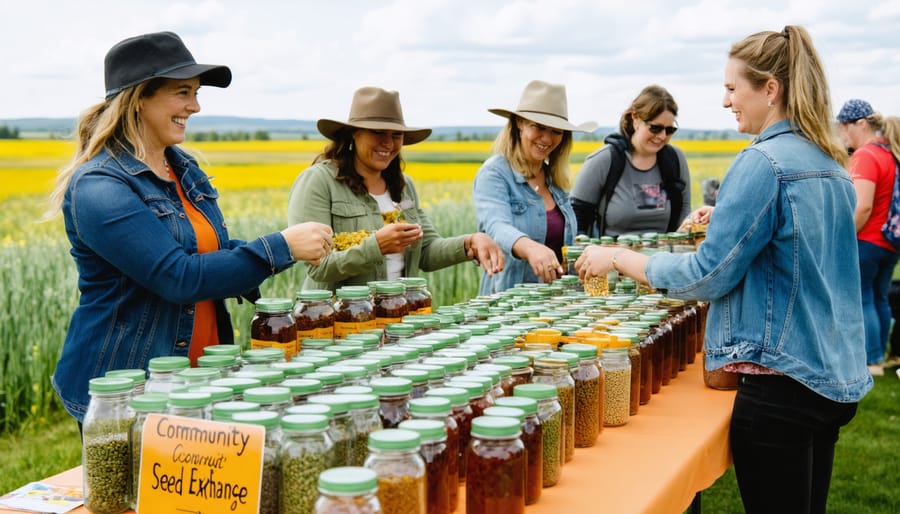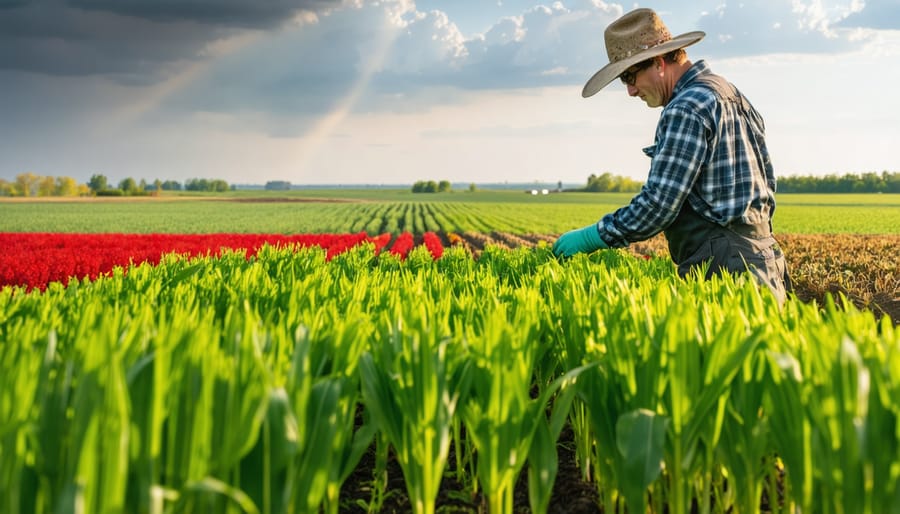Organic farmers across Alberta are forging a powerful alliance through Canada’s fastest-growing agricultural movement. The Organic Farmers Association of Alberta (OFAA) connects over 500 certified organic producers, providing essential assistance to organic farmers through mentorship, market access, and collective advocacy. Unlike conventional farming networks, this grassroots organization champions sustainable agriculture while delivering tangible economic benefits – members report an average 15% increase in market reach within their first year of joining.
Working directly with provincial agricultural bodies and national organic standards regulators, OFAA has secured over $2.5 million in dedicated funding for organic transition support since 2020. This farmer-led initiative combines traditional agricultural wisdom with innovative sustainable practices, creating a resilient community that’s reshaping Canadian agriculture. From small-scale vegetable operations to large grain producers, OFAA members are pioneering solutions to modern farming challenges while preserving the integrity of organic certification standards.

The Role of Organic Farmers Associations in Financial Support
Membership Benefits and Support Services
Joining an organic farmers association opens up a wealth of financial and operational benefits designed to support your agricultural success. As one of the leading organic organizations in Canada, we provide members with exclusive access to cost-saving programs and essential support services.
Members enjoy significant discounts on organic certification fees, typically saving 15-20% annually through our partnership programs with certification bodies. Our bulk purchasing initiative allows farmers to access organic seeds, supplies, and equipment at wholesale prices, resulting in average savings of $2,500-5,000 per growing season.
Marketing support is a cornerstone of our membership benefits, including free listings in our organic producer directory and priority access to our farmers’ market network across Alberta. Members receive complementary professional product photography services and customized marketing materials valued at over $1,000.
Technical support is readily available through our dedicated helpline, staffed by experienced organic agriculture specialists. Members can access unlimited consultations on certification requirements, pest management strategies, and soil health optimization. Our monthly workshops and field days, valued at $200 per session, are free for members.
The association also provides exclusive access to our equipment-sharing program, allowing members to use specialized organic farming machinery without the burden of full ownership costs. Additional benefits include discounted soil testing services, preferred rates on liability insurance, and access to our members-only seed exchange program.
Through our mentorship program, new organic farmers are paired with experienced producers, providing invaluable guidance during the transition period and beyond. This personalized support helps members navigate challenges while maximizing their operation’s potential and profitability.
Collective Bargaining and Group Purchasing Power
One of the most significant advantages of joining an organic farmers association is the collective bargaining power it provides. When farmers unite through an association, they gain the ability to negotiate better terms with suppliers, processors, and distributors. In Alberta, association members regularly save 15-20% on organic seeds, fertilizers, and equipment through group purchasing agreements.
These collective arrangements extend beyond just purchasing power. Associations often negotiate preferred rates for certification services, insurance coverage, and transportation costs. For example, members of regional organic associations have secured bulk shipping rates that save an average of $2,000 per year per farm on transportation expenses.
Storage facilities and processing equipment can also be accessed at reduced rates through association partnerships. Many Alberta-based organic associations have established relationships with local grain storage facilities, offering members priority access during peak harvest seasons at negotiated rates up to 30% below standard market prices.
The power of group purchasing is particularly evident during market negotiations. When associations represent multiple farms, they can secure better contracts with major retailers and food processors. This collective approach has helped many Canadian organic farmers maintain stable pricing structures and gain access to premium markets that might be unavailable to individual producers.
By pooling resources and sharing costs, association members can also invest in specialized equipment or facilities that would be too expensive for a single farm to purchase and maintain.
Available Financial Programs Through Alberta Associations
Government Grant Programs
Canadian organic farmers can access various government funding programs to support their transition to organic practices and sustain their operations. At the federal level, the Canadian Agricultural Partnership (CAP) offers cost-sharing programs covering up to 50% of eligible expenses for organic certification, equipment upgrades, and soil health improvements.
In Alberta, the Environmental Stewardship and Climate Change Producer Program provides grants up to $100,000 for implementing sustainable farming practices, including organic methods. The Organic Agriculture Research and Innovation Initiative offers funding for on-farm research projects and innovation in organic production methods.
The Canada Organic Trade Association manages several targeted programs, including the Organic Science Cluster, which provides funding for research and development in organic farming techniques. New farmers can benefit from the Young Agrarian Organic Transition Program, offering mentorship support and up to $5,000 in financial assistance.
Additional provincial opportunities include the Alberta Soil Health Grant Program, providing up to $50,000 for soil improvement projects, and the Farm Water Supply Program, supporting water management initiatives with matching funds up to $30,000.
Farmers should note that application deadlines vary throughout the year, and many programs require detailed business plans and environmental assessments. Local organic farming associations can provide guidance on application processes and help identify the most suitable funding opportunities for individual farm operations.
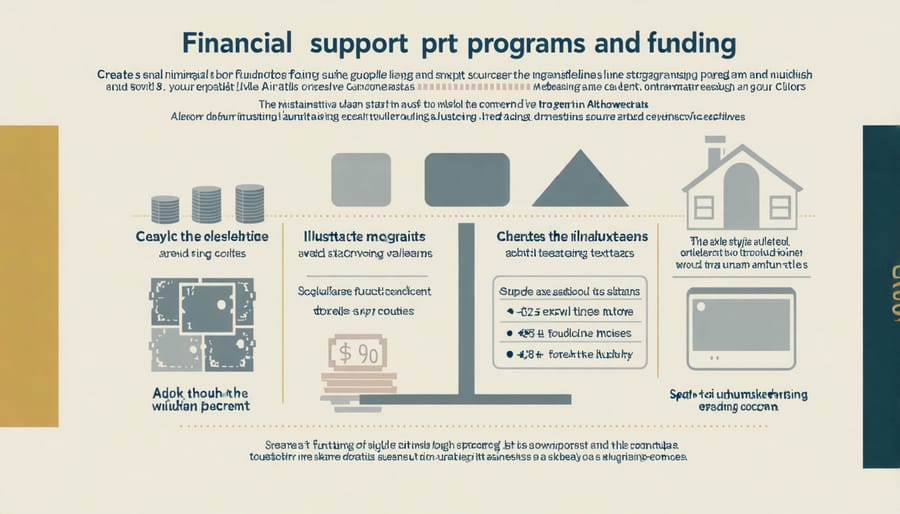
Private Sector Funding Initiatives
Beyond government support, organic farmers in Alberta have access to numerous private sector funding opportunities. Major agricultural banks and credit unions offer specialized loan programs designed specifically for organic transitions and expansions, with competitive interest rates and flexible repayment terms. The Farm Credit Canada’s Organic Transition Program, for instance, provides financing options that align with the three-year transition period required for sustainable profit in Alberta.
Several private foundations and agricultural corporations also offer grants and investment partnerships. The Organic Enterprise Fund matches organic farmers with impact investors, while the Prairie Organic Development Fund provides capital for infrastructure improvements and certification costs. Local food co-operatives and organic processors frequently offer advance contracts and financial partnerships to support farm development.
Additionally, crowdfunding platforms like FarmFundr and sustainable agriculture investment groups have emerged as innovative funding sources, connecting organic farmers directly with conscious investors who share their commitment to sustainable agriculture. These platforms typically offer both equity-based and reward-based funding options, allowing farmers to maintain operational control while accessing necessary capital.

Success Stories: Alberta Organic Farmers
Meet the successful Alberta organic farmers who have transformed their operations through association support. The Thompson family from Lacombe transitioned their 400-hectare grain farm to organic production in 2018, utilizing association mentorship programs and certification guidance. Within three years, they increased their profit margins by 40% while reducing input costs.
Sarah Martinez, a second-generation farmer near Medicine Hat, leveraged association workshops to implement innovative crop rotation strategies. Her diverse operation now includes heritage grains and specialty pulses, serving premium markets across Western Canada. The association’s marketing network helped her secure stable contracts with organic food processors.
Near Edmonton, the Berg Brothers demonstrate how association resources supported their vertical integration journey. Starting with 200 hectares of organic vegetables, they now operate their own processing facility and direct-to-consumer program, employing twelve local community members. Their success story showcases how association networking events and business development seminars can help farmers expand beyond primary production.
The path to securing financial assistance for organic farming in Alberta is clear and achievable through the support of organic farmers associations. By becoming an active member of these organizations, you gain access to a wealth of resources, funding opportunities, and a supportive community of experienced organic producers. Remember to maintain detailed records of your organic practices, stay current with certification requirements, and regularly check association newsletters for new funding programs.
Take the first step by reaching out to your local organic farmers association to discuss membership options and available support programs. Many successful Alberta organic farmers started their journey with a simple conversation at their regional chapter. Consider attending upcoming association workshops or field days to network with other producers and learn about their experiences with various funding programs.
The transition to organic farming, while challenging, offers significant rewards for those who utilize the financial assistance tools available. With proper planning, community support, and guidance from organic farmers associations, you can build a sustainable and profitable organic operation that contributes to Canada’s growing organic sector.


